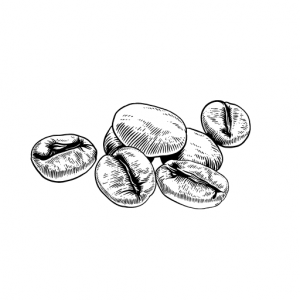The journey from coffee bean to cup is a remarkable one, filled with history, craftsmanship, and passion.
Picture this: it’s early morning, and you’re standing in your cozy kitchen, eagerly awaiting that first sip of coffee. The aroma fills the air, instantly awakening your senses and putting a smile on your face. But have you ever wondered where that delectable brew comes from?
As a coffee enthusiast, you appreciate the artistry behind every sip. That’s why we invite you to embark on a journey to discover the allure of Indonesian beans. In the bustling coffee trade between Indonesia and Europe, these exceptional beans make their way from the lush plantations of Indonesia to the cups of European coffee connoisseurs.
Attractive and robust, Indonesian coffee has captured the hearts of European coffee lovers with its unparalleled flavors and rich heritage. In this article, we will delve into the historical background of Indonesian coffee, explore its unique varieties, production process, the role of smallholder farmers, the vibrant coffee culture, the export market, challenges faced by the industry, and its promising future.
So, grab your favorite mug, settle in, and prepare to unlock the secrets of Indonesian coffee that will forever change the way you savor your morning brew.
Historical Background of Indonesian Coffee
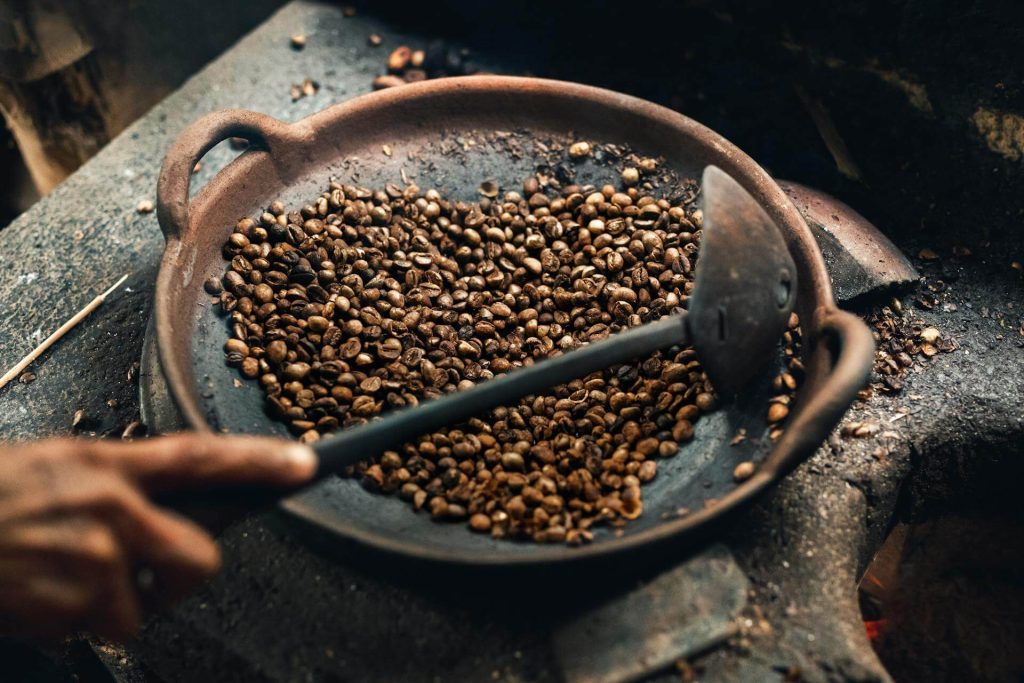
The cultivation of coffee in Indonesia has a deep-rooted history that can be traced back to the 17th century. It was during this time that Dutch colonialists introduced coffee plants to the archipelago, forever shaping the coffee industry in the region.
Java and Sumatra quickly became the primary regions for coffee production, thanks to their ideal climate and fertile volcanic soil. The Dutch colonialists saw the potential in the Indonesian coffee industry and established large plantations to cultivate coffee on a commercial scale.
Over time, coffee became a significant cash crop for Indonesia, with the Dutch profiting immensely from coffee exports. The success of the industry led to the transformation of Indonesia into one of the world’s leading coffee producers.
However, the cultural significance of coffee in Indonesia extends beyond economic considerations. Coffee houses, known as “kopi tiam,” emerged as social hubs and gathering places for intellectual discussions. These coffee houses played a vital role in shaping Indonesian culture and contributed to the long-standing tradition of coffee appreciation in the country.
Today, Indonesia remains renowned for its high-quality coffee and is home to various coffee-growing regions, each with its own unique flavors and characteristics. The historical legacy of Dutch colonialists and their introduction of coffee plants has left an indelible mark on the Indonesian coffee industry, making it an integral part of the nation’s identity.
The Table: Leading Coffee Producers in Indonesia
| Region | Notable Coffee Varieties |
|---|---|
| Java | Javanese coffee |
| Sumatra | Sumatran coffee |
| Sulawesi | Sulawesi coffee |
| Bali | Bali coffee |
Unique Coffee Varieties of Indonesia
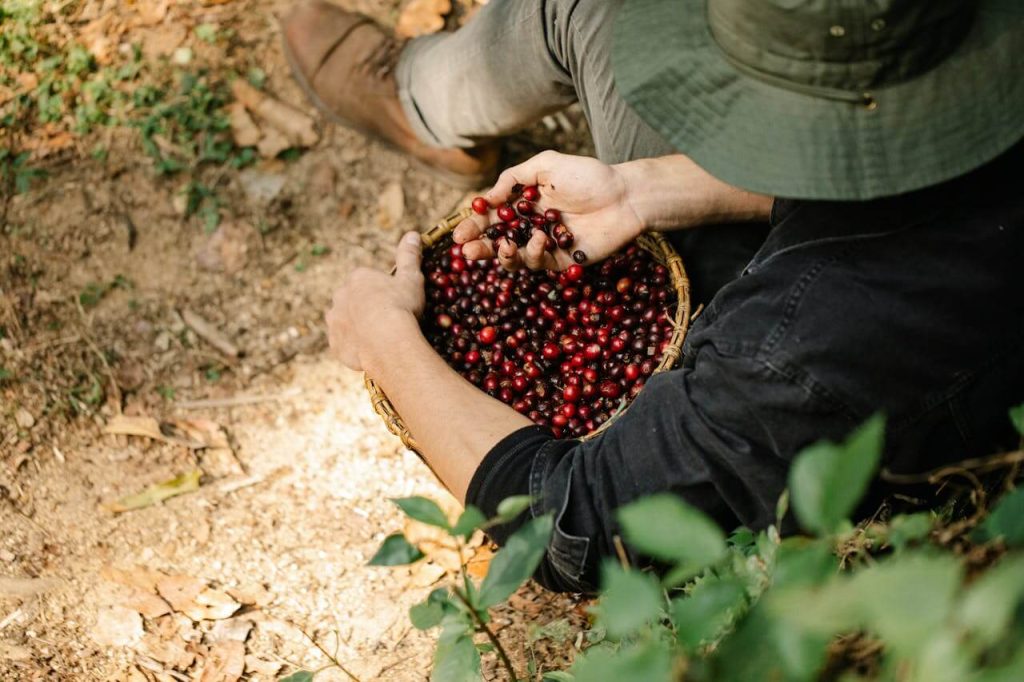
Indonesia is renowned for its diverse coffee varieties, each with its own unique characteristics and flavors. Coffee enthusiasts can embark on a flavorful journey by indulging in Indonesian coffee. Let’s explore some of the notable varieties:
Sumatran Coffee
Sumatran coffee is known for its full-bodied and earthy flavors, making it a favorite among coffee connoisseurs. It offers a unique combination of richness and depth that lingers on the palate.
Javanese Coffee
Javanese coffee is characterized by its mild and balanced taste, providing a smooth and pleasant coffee experience. Its subtle flavors make it an excellent choice for those who prefer a lighter and milder coffee profile.
Sulawesi Coffee
Sulawesi coffee boasts richness and complexity, delivering a distinct and memorable cup. Its well-rounded flavors and unique aroma make it a sought-after choice for those seeking a captivating coffee experience.
Bali Coffee
Bali coffee is known for its unique sweetness, offering a delightful combination of delicate flavors and smoothness. It provides a pleasant surprise with its well-balanced and exquisite taste.
| Other Distinct Varieties |
|---|
| Aceh Gayo |
| Toraja |
| Flores |
| Papua Wamena |
These varieties from different regions of Indonesia offer their own unique flavor profiles, highlighting the diversity and richness of Indonesian coffee. Each cup tells a story and provides a distinct experience.
Interested with our selection of arabica and robusta coffee bean?
Coffee Production Process in Indonesia
The production process of Indonesian coffee involves several essential steps, ensuring the highest quality and flavor. Let’s take a closer look at each stage:
Coffee Cultivation
Indonesia’s diverse microclimates and volcanic soils create the perfect conditions for coffee cultivation. The country is home to various coffee-growing regions that produce unique flavor profiles and characteristics. Coffee plants thrive in the fertile soils, absorbing the nutrients and developing their distinct taste.
Hand-Picking Process
The hand-picking process is a crucial step in ensuring the quality of Indonesian coffee beans. Skilled farmers selectively harvest only the ripe coffee cherries, avoiding under-ripe or overripe ones. This method allows for precise control over the quality and ensures that only the best coffee cherries are collected.
Wet-Hulling Method
The wet-hulling method is employed for processing Indonesian coffee, especially the renowned Sumatran coffee. During this unique method, the coffee beans undergo a fermentation process that imparts a distinct flavor to the coffee. This method, also known as Giling Basah, contributes to the earthy and full-bodied characteristics that Sumatran coffee is known for.
Coffee Drying Process
After wet-hulling, the coffee beans are dried to the optimum moisture content. This process is critical in preventing mold growth and preserving the flavor of the beans. The beans are typically sun-dried on raised beds or patios, allowing them to absorb the natural flavors of the environment.
Coffee Roasting Process
The final step in the production process is coffee roasting. Skilled roasters carefully roast the dried coffee beans to unlock their unique flavors and aromas. The roasting process helps to develop the coffee’s acidity, body, and complexity, resulting in a rich and balanced cup of coffee.
Once the coffee beans are roasted to perfection, they are meticulously packaged and prepared for distribution, ready to be enjoyed by coffee enthusiasts around the world.
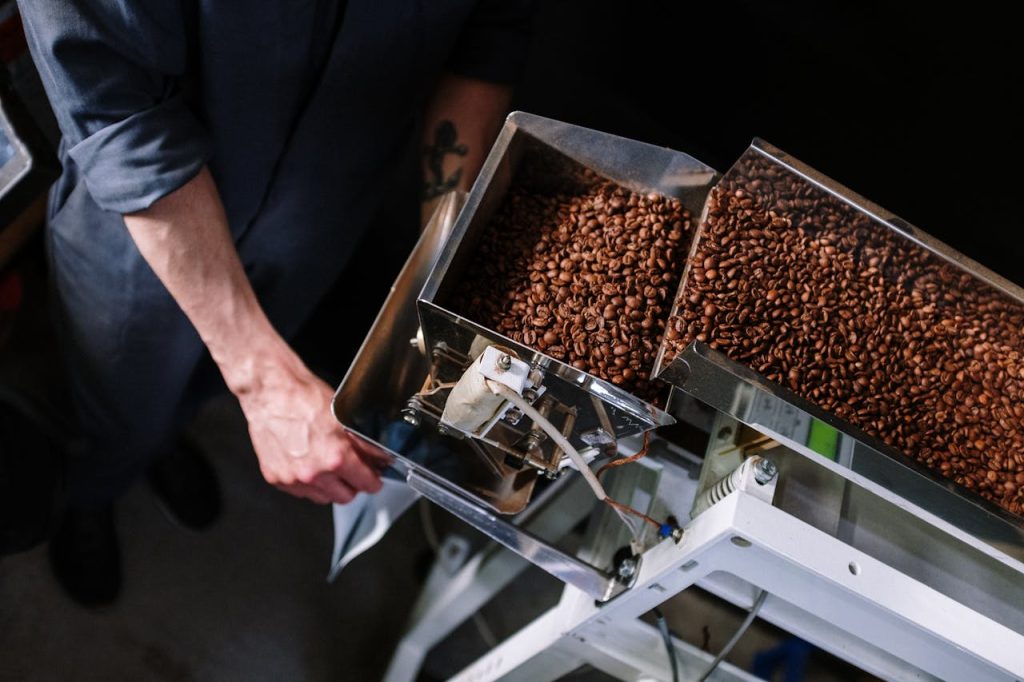
| Stage | Description |
|---|---|
| Coffee Cultivation | Careful cultivation in diverse microclimates and volcanic soils. |
| Hand-Picking Process | Selective harvesting of ripe coffee cherries for optimal quality. |
| Wet-Hulling Method | Specialized processing method for Sumatran coffee. |
| Coffee Drying Process | Drying the beans to the optimum moisture content. |
| Coffee Roasting Process | Expert roasting to unlock flavors and aromas. |
The Role of Smallholder Farmers in Indonesian Coffee Industry
Smallholder coffee farmers are the backbone of the Indonesian coffee industry, playing a vital role in preserving traditional cultivation practices and maintaining the country’s rich coffee heritage. These dedicated farmers follow organic and sustainable farming methods, prioritizing the use of intercropping and minimal chemical inputs. Their unwavering commitment to quality and tradition ensures that Indonesian coffee retains its unique flavors and characteristics.
Coffee farming serves as a crucial livelihood source for many rural communities in Indonesia. It provides income and employment opportunities, supporting the economic growth of these regions. However, smallholder farmers face various challenges in their daily endeavors. Limited resources, including access to finance, technology, and education, hinder their ability to optimize production and reach wider markets. Additionally, climate change impacts, such as irregular rainfall patterns and increased pest prevalence, pose significant threats to their crops.
To address these challenges and empower smallholder farmers, numerous initiatives have been implemented in Indonesia. These initiatives focus on providing support and resources to enhance farmers’ capabilities, increase their resilience to climate change, and improve their access to markets. Organizations and governmental bodies collaborate to offer training programs, financial assistance, and technical guidance. Through these collective efforts, smallholder farmers are equipped with the knowledge and tools needed to overcome obstacles and thrive in the coffee industry.
By recognizing and supporting the invaluable contributions of smallholder coffee farmers, the Indonesian coffee industry ensures the preservation of its heritage and the sustainable future of the sector. These farmers are custodians of a legacy that spans generations, cultivating coffee through time-honored techniques that have been passed down for centuries.
To gain a deeper understanding of the integral role smallholder farmers play in the Indonesian coffee industry, let’s take a look at the following table that highlights their significance and challenges:
| Role of Smallholder Farmers | Challenges Faced |
|---|---|
| Preserving traditional cultivation practices | Limited resources |
| Maintaining coffee heritage | Climate change impacts |
| Contributing to rural livelihoods | |
Smallholder coffee farmers are the heart and soul of the Indonesian coffee industry. Through their unwavering dedication and love for their craft, they ensure the continuity of Indonesia’s rich coffee heritage. Their contributions not only support their own livelihoods but also have far-reaching effects on the global coffee community.
Indonesian Coffee Culture

Coffee holds a special place in Indonesian culture, reflecting the country’s rich heritage and appreciation for the beverage. Traditional brewing methods and coffee ceremonies are integral parts of Indonesian coffee culture.
One of the most beloved traditional brewing methods in Indonesia is kopi tubruk. This method involves pouring finely ground coffee directly into a cup and adding hot water. The coffee grounds settle at the bottom, creating a unique and robust flavor. Kopi tubruk has been enjoyed by generations of coffee lovers in Indonesia and is a testament to the country’s commitment to preserving its coffee traditions.
A notable highlight of Indonesian coffee culture is the renowned kopi luwak, also known as civet coffee. Kopi luwak is made from coffee beans that have been digested and excreted by Asian palm civets. This unique production process results in a distinctive flavor profile.
Coffee Ceremonies: Celebrating Coffee Heritage
Coffee ceremonies are a cherished part of Indonesian culture, where the art of brewing and serving coffee is elevated to a ceremonial experience. These ceremonies often take place during social gatherings, special occasions, or to welcome guests.
During a traditional Indonesian coffee ceremony, the host meticulously prepares and serves the coffee. It is a time for storytelling, sharing wisdom, and fostering connections. Coffee ceremonies highlight the cultural significance of coffee in Indonesia and the importance of communal experiences.
Through kopi tubruk, kopi luwak, and coffee ceremonies, Indonesian coffee culture showcases the country’s deep-rooted appreciation for coffee, its traditions, and the rituals surrounding the beverage.
Export Market for Indonesian Coffee to Europe
The export market for Indonesian coffee to Europe plays a crucial role in the growth and success of the Indonesian coffee industry. European countries serve as major importers of Indonesian coffee, creating opportunities for Indonesian coffee exporters to supply their products to various destinations across Europe. This not only strengthens the trade relations between Indonesia and Europe but also contributes to the development and expansion of the European coffee market.
European coffee importers appreciate the unique flavors and characteristics of Indonesian coffee, making it a sought-after commodity in the European market. The demand for Indonesian coffee in Europe stems from its exceptional quality, diverse coffee varieties, and the craftsmanship of Indonesian coffee producers.
In order to meet the requirements and preferences of European coffee enthusiasts, coffee suppliers in Indonesia actively participate in the European coffee market. They ensure that the European market is supplied with a wide range of Indonesian coffee varieties, including Sumatran coffee, Javanese coffee, Sulawesi coffee, Bali coffee, Aceh Gayo, Toraja, Flores, and Papua Wamena. By offering a diverse selection, coffee suppliers cater to the diverse tastes and preferences of European consumers.
European coffee distribution channels provide the necessary infrastructure and logistics to efficiently transport and distribute Indonesian coffee throughout the European market. These channels ensure that Indonesian coffee reaches coffee shops, specialty stores, and consumers in various European countries, thus building a strong presence for Indonesian coffee in the European coffee industry.
To understand the significance of the export market for Indonesian coffee to Europe, let’s take a closer look at the top European coffee importers and their respective coffee consumption:
| European Country | Coffee Consumption |
|---|---|
| Germany | 85 million kilograms |
| France | 65 million kilograms |
| Italy | 55 million kilograms |
| Spain | 45 million kilograms |
| United Kingdom | 40 million kilograms |
The table above highlights the significant coffee consumption in some of the major European countries. These countries not only have a strong coffee culture but also appreciate the quality and unique flavors of Indonesian coffee, making them key players in the European coffee market.
Interested with our selection of arabica and robusta coffee bean?
Challenges Faced by the Indonesian Coffee Industry
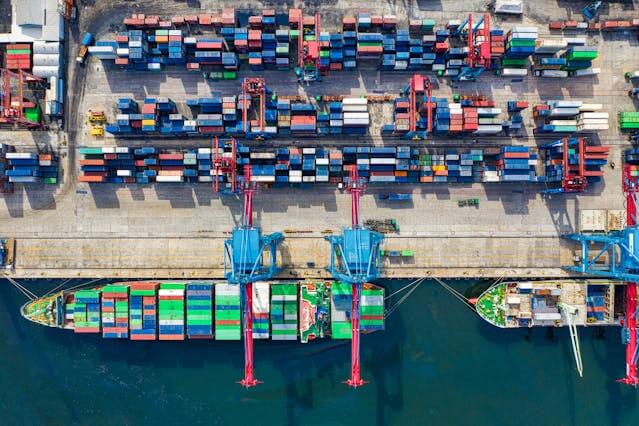
The Indonesian coffee industry is not immune to challenges that hinder its growth and success. These challenges include:
Climate Change Impacts
Climate change poses a significant threat to the Indonesian coffee industry. Rising temperatures, changing rainfall patterns, and increased incidence of pests and diseases affect coffee plantations and yield. The industry must find ways to adapt to these changes and mitigate their impact on coffee production.
Fluctuating Coffee Prices
The coffee market is notorious for its volatile prices, which can have a major impact on the profitability of Indonesian coffee growers and exporters. Fluctuating coffee prices make it difficult for businesses to plan and invest in production, leading to financial instability and uncertainty.
Limited Resources
The Indonesian coffee industry often faces limitations in terms of resources, such as funding, technology, and infrastructure. Limited access to finance hampers the ability to invest in modern farming practices and equipment, hindering efficiency and productivity.
Outdated Equipment
Outdated equipment and machinery are another challenge faced by the Indonesian coffee industry. Many smallholder farmers still rely on traditional and outdated methods for processing and roasting coffee, which affects the quality and consistency of the final product. Upgrading to modern equipment is crucial to improve efficiency and meet international standards.
Efforts are underway to address these challenges and ensure the sustainability and resilience of the Indonesian coffee industry. Initiatives such as training programs, financial assistance, and technological advancements aim to enhance productivity, quality, and market access for coffee growers and exporters.
| Challenges | Impact | Solutions |
|---|---|---|
| Climate Change Impacts | Lower coffee yields, increased susceptibility to pests and diseases | Investing in climate-resilient coffee varieties, implementing sustainable farming practices, and adopting technologies to mitigate climate risks. |
| Fluctuating Coffee Prices | Financial instability, reduced profitability | Developing price stabilization mechanisms, fostering relationships with specialty coffee buyers, and diversifying revenue streams. |
| Limited Resources | Restricted access to funding, outdated technology, inadequate infrastructure | Providing financial support, facilitating technology transfer and adoption, and improving infrastructure and logistics. |
| Outdated Equipment | Inconsistent product quality, inefficiency | Offering training and capacity-building programs, facilitating access to modern processing and roasting equipment, and promoting best practices in coffee production. |
Future Prospects of the Indonesian Coffee Industry
The future of the Indonesian coffee industry is brimming with potential and exciting opportunities. With a strong focus on sustainability, fair trade practices, and market expansion, this industry is poised for remarkable growth. By continuing to prioritize quality, sustainability, and innovation, the Indonesian coffee industry can solidify its position as a leading player in the global market.
One of the key drivers of the industry’s future success lies in its commitment to sustainability initiatives. Indonesian coffee producers are increasingly adopting environmentally friendly practices, such as organic farming methods and responsible sourcing, to ensure the long-term viability of the coffee production process. These sustainability efforts not only protect the ecosystem but also resonate with environmentally conscious consumers worldwide.
In addition to sustainability, the Indonesian coffee industry is capitalizing on market opportunities to propel its growth. As coffee consumption continues to rise globally, particularly among discerning consumers who appreciate the unique flavors and profiles of Indonesian coffee, there is a growing demand for these premium products. By leveraging this demand and expanding their presence in the international market, Indonesian coffee growers and exporters can tap into lucrative opportunities.
Furthermore, the industry’s growth potential is underscored by its commitment to fair trade practices. By ensuring equitable partnerships, fair wages, and just working conditions for smallholder farmers, the Indonesian coffee industry fosters a sustainable and inclusive supply chain. This commitment to social responsibility resonates with consumers who actively seek out ethically sourced and produced coffee, thereby enhancing the industry’s marketability and consumer trust.
In summary, the future of the Indonesian coffee industry holds immense promise. By staying true to its values of sustainability, quality, and innovation, and capitalizing on market opportunities, this industry is well-positioned to strengthen its global presence and capture the hearts and palates of coffee enthusiasts around the world.
Commodity Crate: Your Partner in Coffee Export to Europe
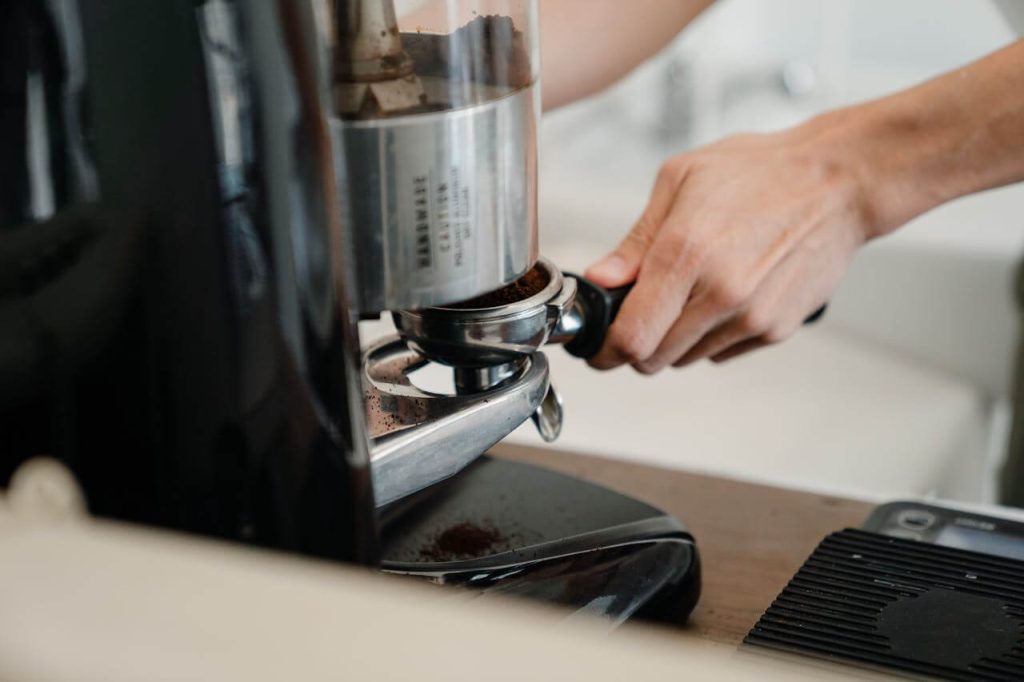
When it comes to coffee export services to Europe, Commodity Crate is your trusted partner. We specialize in providing personalized guidance and expert advice to help you navigate the dynamic market successfully.
Our team of industry professionals understands the intricacies of the European coffee market and can offer tailored solutions to meet your specific needs. Whether you are a seasoned coffee exporter or just starting your journey, we have the knowledge and resources to support you every step of the way.
With Commodity Crate, you can expect personalized consultation that takes into account your unique business goals and challenges. We provide comprehensive market analysis to help you identify trends and opportunities, ensuring that you make informed decisions for your coffee export venture.
Our experienced consultants are committed to offering expert advice based on their in-depth knowledge of the European coffee industry. We stay up-to-date with the latest market developments and regulatory requirements, providing you with invaluable insights that can set your coffee export business apart from the competition.
At Commodity Crate, we understand the importance of building strong relationships with coffee importers in Europe. We can connect you with reputable buyers and distributors who are actively seeking high-quality Indonesian coffee products. Our extensive network allows us to facilitate connections and open doors to new market opportunities.
For personalized guidance, expert advice, and a seamless coffee export experience to Europe, look no further than Commodity Crate. Contact us today to discuss your coffee export goals and let us help you achieve success in the competitive European market.

Interested with our selection of arabica and robusta coffee bean?
Unlocking the Journey of Indonesian Coffee
Exploring the journey of Indonesian coffee, from bean to cup, allows for a deeper understanding and appreciation of the process. By understanding the dedication and expertise that goes into producing Indonesian coffee, coffee enthusiasts can fully appreciate the flavors and aromas in their cup.
A Comprehensive Look at the Indonesian Coffee Journey
Let’s take a closer look at each stage of the Indonesian coffee journey:
| Stage | Description |
|---|---|
| 1. Cultivation | The coffee cultivation process starts with carefully selecting the best coffee plants and cultivating them in diverse microclimates and volcanic soils. Indonesian coffee plants thrive in these unique conditions, resulting in exceptional flavor profiles. |
| 2. Harvesting | The ripe coffee cherries are selectively handpicked by skilled farmers, ensuring that only the highest-quality cherries are chosen. This labor-intensive process requires precision and expertise. |
| 3. Processing | After harvesting, the coffee beans undergo various processing methods. One notable method used in Indonesia is the wet-hulling process, which imparts distinct characteristics to coffees like Sumatran beans. The processing stage plays a crucial role in determining the final flavor profile of the coffee. |
| 4. Roasting | The beans are carefully roasted to perfection, bringing out the unique flavors and aromas. Roasting is an art that requires skill and precision to unlock the full potential of the beans. |
| 5. Cupping | Finally, the coffee is cupped, allowing experts to evaluate its quality and characteristics. Cupping involves tasting and assessing the flavors, acidity, body, and overall profile of the coffee to ensure it meets the highest standards. |
The journey of Indonesian coffee is a testament to the dedication and craftsmanship of the coffee producers. From the careful cultivation and handpicking of the coffee cherries to the precise roasting and cupping, each stage contributes to the exceptional quality that Indonesian coffee is renowned for.
Conclusion
In conclusion, Indonesian coffee offers a captivating journey for European coffee connoisseurs. The country’s rich coffee history, diverse coffee varieties, meticulous production process, and the dedication of smallholder farmers contribute to the exceptional quality and unique flavors of Indonesian coffee. The vibrant coffee culture and the strong presence of Indonesian coffee in the European export market further add to its allure.
Despite the challenges faced by the Indonesian coffee industry, such as climate change impacts and fluctuating prices, there are promising prospects for its future. Sustainability initiatives, market opportunities, and efforts to empower smallholder farmers will play a crucial role in ensuring the industry’s growth and long-term success.
For coffee exporters looking to navigate the European market successfully, Commodity Crate offers expert guidance and personalized assistance. With Commodity Crate’s support, exporters can showcase the exceptional quality of Indonesian coffee to European coffee enthusiasts, further establishing Indonesia as a prominent player in the global coffee industry.


